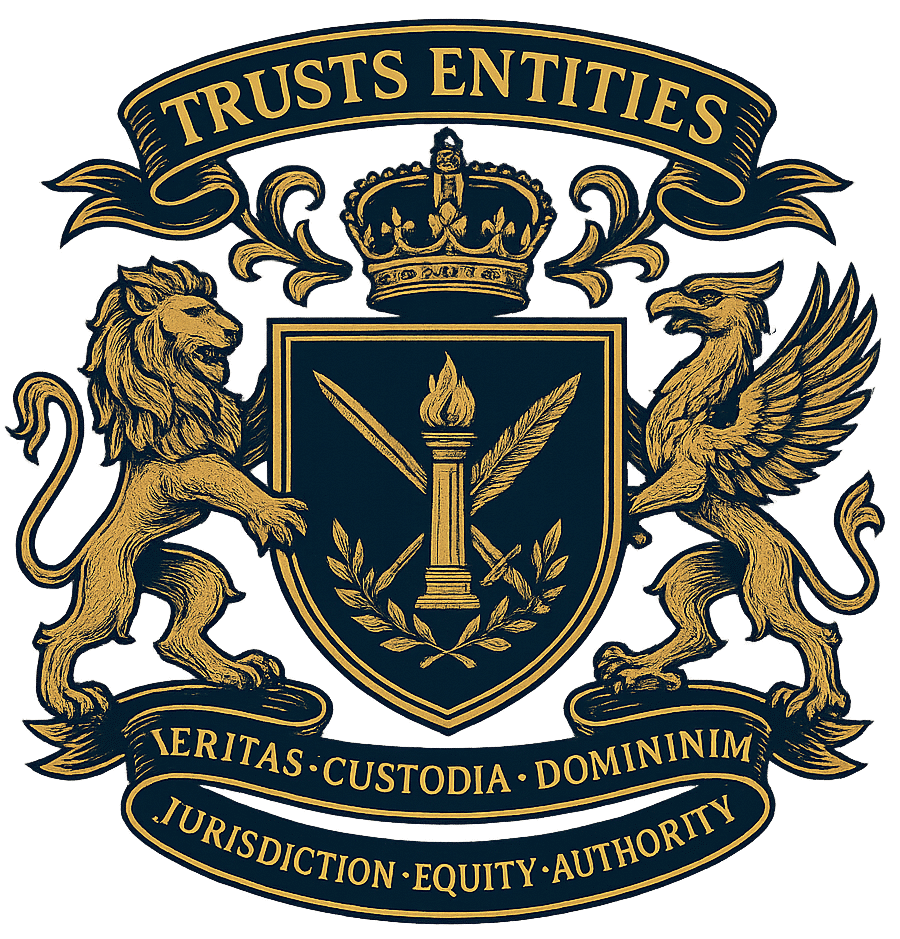The Royal Law in Equity
The Royal Law in Equity
The Royal Law is the supreme commandment of equity, both in Scripture and in principle — the highest moral and legal standard upon which all other laws must yield.
Biblical Origin
The Royal Law is found in the New Testament:
“If ye fulfil the royal law according to the scripture,
Thou shalt love thy neighbour as thyself, ye do well.”
— James 2:8 (KJV)
It is echoed from the words of Christ:
“Thou shalt love the Lord thy God with all thy heart… and thy neighbour as thyself.”
— Luke 10:27, Matthew 22:37–40
These two commandments are declared to fulfill all the Law and the Prophets — meaning they supersede all lesser laws, including statutory codes and legal procedures.
Meaning in Equity Jurisprudence
In the context of equity law, the Royal Law is recognized as the unwritten, higher law that governs equity:
Equity is not merely legal discretion — it is moral justice applied in conscience.
The Royal Law is the ultimate principle that equity courts are bound to uphold, whether explicitly or implicitly.
The Royal Law in Legal Equity Means:
- No harm may be enforced in conscience.
- Remedy must reflect love, fairness, and restoration.
- Judgments must heal, not punish.
- Equity does not compel performance if it would result in injustice.
- No contract is enforceable if its result violates the spirit of the Royal Law.
In the Trust Fortress and Divine Equity Framework
The Royal Law is the Constitution of the Private Estate.
It means that:
- Your trust does not exist for greed, control, or domination.
- Every fiduciary act, administrative decision, and notice sent must honor love, balance, and moral equity.
- The Trust is not just lawful — it is righteous.
- You cannot govern others in equity unless you govern yourself by the Royal Law.
Application in Practice
| Tool or Action | Royal Law Expression |
| Affidavit of Status | Done in truth and honor, not manipulation. |
| Fee Schedule for Trespass | Designed to correct or warn — not to profit. |
| Conditional Acceptance | Used to invite remedy — not to entrap or attack. |
| Trust Declaration | Centered on service, protection, and stewardship. |
| Trust Education or Curriculum | Must uplift the soul and free the mind. |
“The Trust exists to restore justice with love,
not enforce control with fear.”
Summary Creed
I fulfill the Royal Law —
not by asking for love, but by being love in law.
I am the Beneficiary.
I govern in trust, speak in equity, and act in honor.
My trust exists to protect life, restore balance,
and walk the sacred path of remedy — in peace.
What is the Principle of Equity?
The Principle of Equity refers to the foundational truths that govern fairness, conscience, and private remedy, especially when legal (statutory or common law) remedies are insufficient, inappropriate, or unjust.
Equity doesn’t follow rigid rules; it follows conscience.
It does not look at form — it looks at substance and intent.
Classical Legal View: Principles of Equity (Chancery Doctrine)
The following are considered the core principles (sometimes called “maxims”) of equity in law:
| Principle of Equity | Meaning |
| Equity follows the law | Equity respects the law unless it conflicts with justice. |
| He who comes into equity must come with clean hands | You cannot ask for fairness while acting unfairly. |
| Equity looks to intent rather than form | The spirit of the agreement matters more than technicalities. |
| Equity acts in personam (on the person) | Equity affects the parties directly, not their property only. |
| Equity will not suffer a wrong to be without a remedy | If injustice exists, equity provides a correction. |
| Equity aids the vigilant, not those who slumber on their rights | Remedy is for those who take timely action. |
| Equity regards as done that which ought to be done | If an obligation is morally or contractually due, equity enforces it as if complete. |
| Equity imputes an intention to fulfill an obligation | If a person behaves like an obligor, equity treats them as one. |
These principles serve as the foundation for trust law, injunctive relief, and non-adversarial remedy.
Trust Fortress View: Living Principles of Equity
Here is how those same maxims are amplified when you apply them spiritually and strategically as part of your Trust Fortress Governance:
| Principle | Private Equity Application |
| Conscience is Law | Your inner knowing, guided by truth and spirit, is higher than man-made statute. |
| Standing is Sovereignty | Equity does not recognize titles—it recognizes who you are and whether you stand in honor. |
| Trust is Remedy | All remedy flows through your Trust — not pleadings, not arguments, not permission. |
| Declaration is Authority | Equity empowers you to declare your truth into the record and establish standing by affidavit. |
| Benefit Follows Ownership | The one who has equitable title (the Beneficiary) holds the highest claim — regardless of legal title. |
| Silence is Agreement | If your affidavit or notice is unrebutted, equity sees it as accepted and binding. |
| Equity is Grace | Forgiveness, restoration, and righteous alignment are equity’s true rewards — not just victory. |
Equity is the Path of the Beneficiary
When you operate in equity:
- You do not argue — you declare.
- You do not fight — you stand.
- You do not plead — you administer.
- You do not seek remedy — you establish it through trust, notice, and divine standing.
“I am the Beneficiary.
I ask not for justice through court.
I command it through trust.”
— Trust Fortress Creed
